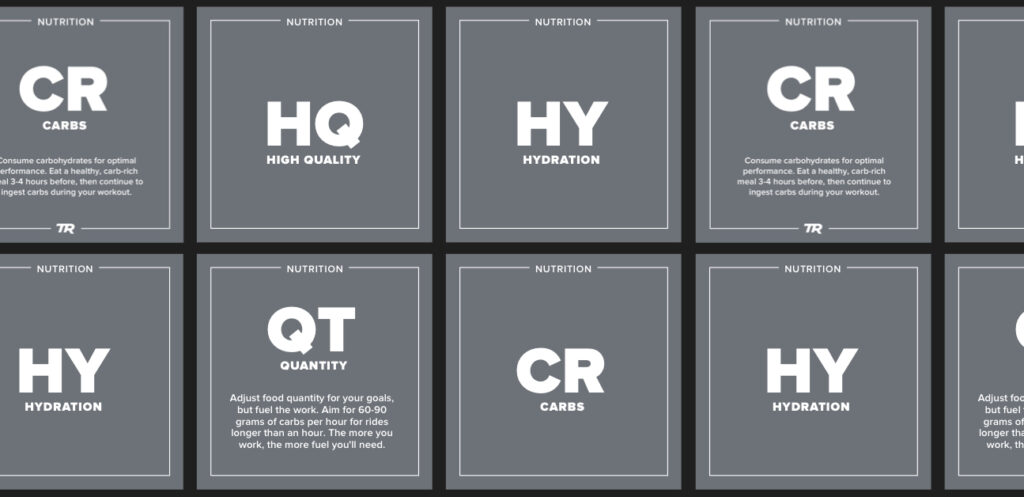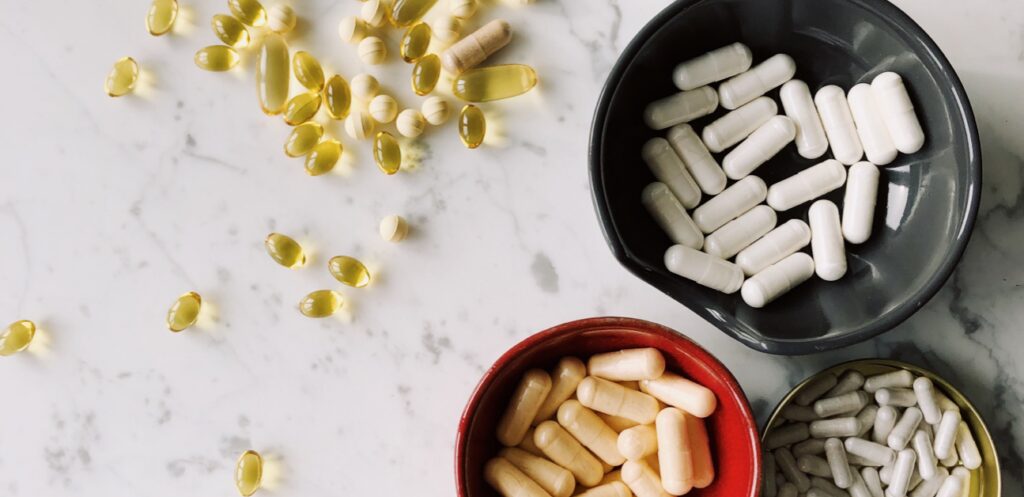The Basics of Plant-Based Nutrition for Cyclists and Endurance Athletes
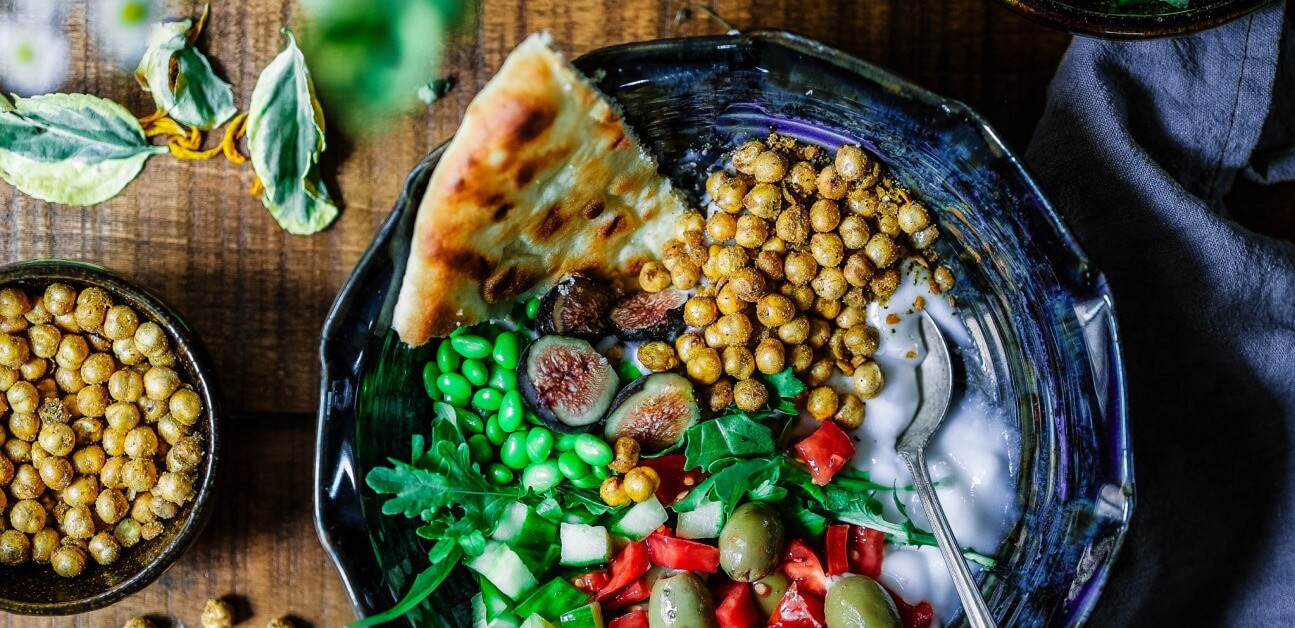
Whether for reasons related to health, personal ethics, or athletic performance, more of us than ever before are reducing our intake of meats and animal-derived products. But as with any change in diet, it’s important to understand the nutritional concerns and considerations that come with going plant-based. In this post, we examine the potential benefits and drawbacks of adopting a vegan or vegetarian diet as an athlete and offer some practical advice for getting the nutrients you need to get faster.
Defining Plant-Based
In the context of diet, the term plant-based is usually synonymous with vegan, referring to a diet completely free of animal products.1 Vegans do not consume any meats, eggs, or dairy, and also avoid animal-produced products like honey. Vegan diets also exclude food additives derived from animal sources like gelatin, casein, and lactose.2
Vegetarian or semi-vegetarian diets also exclude meat but may include some milk, fish, eggs, or foods made with animal byproducts.2 While not technically considered fully plant-based, these diets all reduce the intake of animal protein and can have similar nutritional implications. Thus, while this blog post is primarily aimed at athletes on a vegan diet, its recommendations can be of use to any athlete seeking to reduce consumption of animal-derived food.
A Growing Trend
From recreational amateurs to elite professionals, a small but growing percentage of cyclists and triathletes are shifting from an omnivorous diet (one that contains a mixture of plant and animal products) to a plant-based one.3 This mirrors broader trends beyond sport, as most surveys suggest the popularity of meatless or meat-reduced diets is accelerating in many countries. US sales of plant-based meat, milk, and egg substitutes grew 43% over the last two years4, and the global vegan food market is expected to expand by 9.6% each year through 2025.5 Survey results vary6, but around 6% of the total US population and 10% of Europeans now self-identify as vegetarian or vegan7, and some data suggests that proportion may be even higher amongst endurance athletes.8
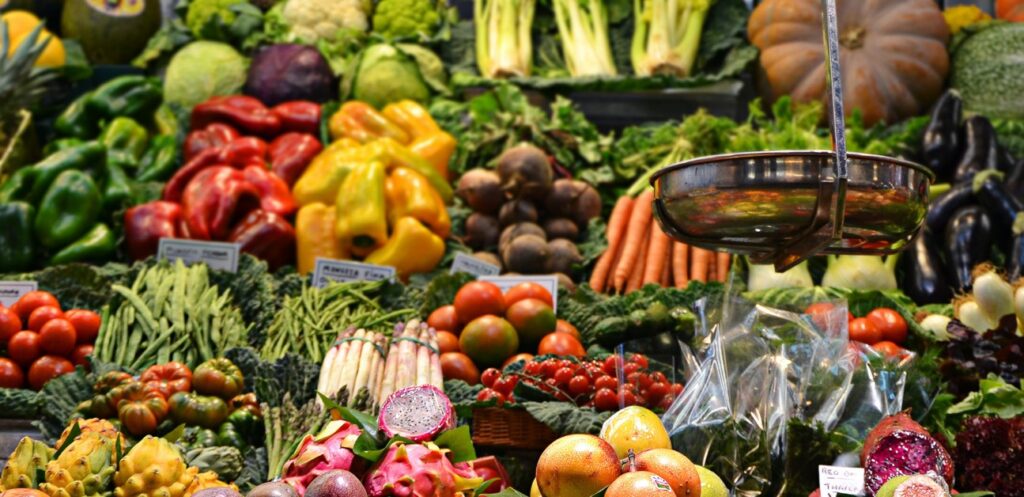
The Potential Benefits of a Plant-Based Diet
Many vegans and vegetarians cite animal welfare or environmental concerns as their reason for reducing their consumption of animal products.9 But we’re most interested in how a plant-based diet can impact health and athletic performance, and evidence suggests some compelling benefits.
At the most basic level, multiple studies and reviews show eating less meat correlates with lower average body mass indexes (BMI); vegetarians tend to have lower BMIs than meat-eaters and vegans have the lowest average BMIs of all.10 BMI certainly has its limitations, but it’s considered a useful way to track weight status and weight-related illness risk across large populations.11 This suggests plant-based diets might reduce the risk of weight-related illnesses, and the data backs this up—studies show people following vegan diets have a lower risk of heart disease-related death and significantly reduced risk of high blood pressure, as well as lower cholesterol and blood sugar levels, when compared to people eating omnivorous diets.12
Studies also show people who follow vegan diets have a decreased risk of certain cancers and an overall increase in life expectancy.13 It’s unclear whether this is due to the omission of animal products or the fact that plant-based diets generally include lots of beneficial whole grains, fruits, and fresh vegetables; the presence of these foods means vegan diets tend to include more fiber, antioxidants, and vitamins than average omnivorous western diets.14
Healthy athletes are stronger athletes. While it’s unclear whether plant-based diets can directly improve sports performance, well-balanced vegan and vegetarian diets are considered appropriate to meet the nutritional needs of competitive athletes.8 Successful competitors at the highest level of sport have proven this to be true in the real world.
Plant-Based Benefits Takeaway:
- Studies correlate well-balanced plant-based diets with numerous health benefits and reduced mortality, and plant-based athletes have succesfully competed at the highest levels of endurance sport.
Potential Drawbacks of a Plant-Based Diet
While the evidence is clear that plant-based diets can be good for your health, there’s a caveat: not all plant-based diets are created equal, and switching from an omnivorous diet to a plant-based one doesn’t guarantee better nutrition. Most plant-based diets do contain less sugar, salt, and saturated fat than standard western diets,14 but a growing variety of high-calorie processed vegan options exist. In fact, it’s entirely possible to eat a high-fat, high-sugar, low-nutritional quality vegan diet, which could conceivably negate many of the health benefits associated with a plant-based lifestyle.
Vegan diets can also lack essential nutrients commonly found in animal-derived products. This risk is probably not as severe as most people think,8 and health authorities consider vegan diets capable of supplying adequate, balanced nutrition.15 As we’ll see again and again, the key is variety—a wholesome plant-based diet with a range of vegetables, fruits, legumes, and grains is likely to contain almost everything you need, but a careless and limited vegan diet might not. Let’s take a look at a few of the most common nutritional shortcomings associated with plant-based diets for athletes, and consider how to remedy them.
Plant-Based Drawbacks Takeaway:
- Just because a diet is plant-based doesn’t automatically make it better for you. Any limited diet (including a plant-based one) can lack key nutrients if applied carelessly.
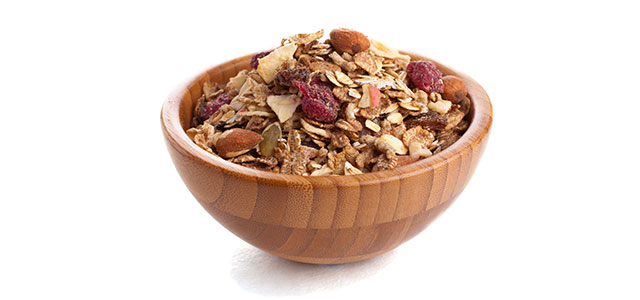
Calories
The simplest goal of any diet is to supply your body with enough energy (measured in calories) to do all the things you ask of it. Since plant-based foods can be less calorie-dense than similar foods that include animal products,16 some vegans find it difficult to get enough calories to fuel the demands of endurance sports. This can be especially challenging if you’re eating lots of vegetables and whole foods, which are the foundation of most plant-based diets.
A slightly reduced calorie intake can be helpful when trying to lose weight or improve body composition. Otherwise, most athletes can easily compensate by eating a little more overall, as well as by including some naturally high-calorie whole foods like nuts. Vegan carbohydrates like grains, bread, potatoes, and energy gels usually contain just as many calories as their non-vegan counterparts and are perfectly effective ways to fuel your workouts. To be absolutely sure, use an app to count your calorie consumption for a few days and see if you need to increase your intake.
Calories Takeaway:
- Some plant-based diets are less calorie-dense than omnivorous diets. You might need to eat more food overall to meet your energy needs, especially during periods of high training load.
Calcium and Vitamin D
Calcium is an essential mineral required for heart health, muscular and nervous system function, and especially for bone health. Diets low in calcium can lead to osteopenia, a worrying decrease in bone density. If unaddressed this can eventually lead to osteoporosis, in which the bones become brittle and may break easily. Because it is low-impact and non-weight bearing, cycling is already associated with poor bone health; this makes it even more important for cyclists to get enough calcium in their diets. Adults up to the age of 50 should get between 1,000mg and 2,500mg a day, and older adults can probably benefit from even more.17
Adaptive Training
Get the right workout, every time with training that adapts to you.
Check Out TrainerRoadThe most common dietary sources of calcium are dairy products, so plant-based athletes can risk not getting enough. But calcium is found in plant sources including green leafy vegetables, seeds, beans, and almonds; it’s also added to many non-dairy milk products like oat milk.18 If you eat a balanced diet including a mix of these foods there’s a decent chance you’re already getting plenty.
It’s important to note that your body can only digest so much calcium at once, so it’s a good idea to spread your consumption of calcium-rich foods throughout the day. Calcium absorption requires Vitamin D,19 which is also commonly lacking in plant-based foods. Your body can usually produce enough Vitamin D on its own if you get plenty of sun, but some athletes may require supplementation so check with your doctor.
Calcium Takeaway:
- Calcium deficiency is a serious concern, especially as a cyclist. Varied plant-based diets can supply plenty, but make sure you’re also getting enough vitamin D from sunshine and/or potential supplementation.
Vitamin B12
Also known as cobalamin, B12 is the most complex vitamin molecule in the human diet20 and also the vitamin required in the smallest amount: a recommended intake of 2.4 micrograms a day for adults.21 But just because you don’t need much doesn’t mean it’s not important, and B12 plays a crucial role in forming red blood cells, nerve function, and the structure of DNA. Not getting enough B12 in your diet can lead to a host of serious problems, starting with numbness and fatigue and potentially including anemia, cognitive decline, and severe neurological issues if left untreated.22
B12 is of special concern for plant-based athletes because only animal sources can reliably provide it in an unsupplemented diet. Luckily for vegans, B12 can be derived from a non-animal microbial source and used to fortify foods. It’s most commonly added to plant-based milks, breakfast cereals, nutritional yeast, and some veggie burgers. If you eat these foods regularly you may already be getting enough B12, but check labels carefully and take a supplement if you’re not.
One last note of irony on B12: while a careless plant-based diet does leave you at risk of not getting enough, the opposite is true of a well-considered plant-based diet. Vegans who regularly eat B12-fortified foods or use B12 supplements are significantly less likely to be deficient in this crucial vitamin than people who get it from meat.21
B12 Takeaway:
- A limited plant-based diet may be deficient in vitamin B12, which is serious and can lead to negative health effects. Eat a variety of B12-rich foods such as nutritional yeast and fortified vegan products and make sure you’re getting enough to meet recommendations.
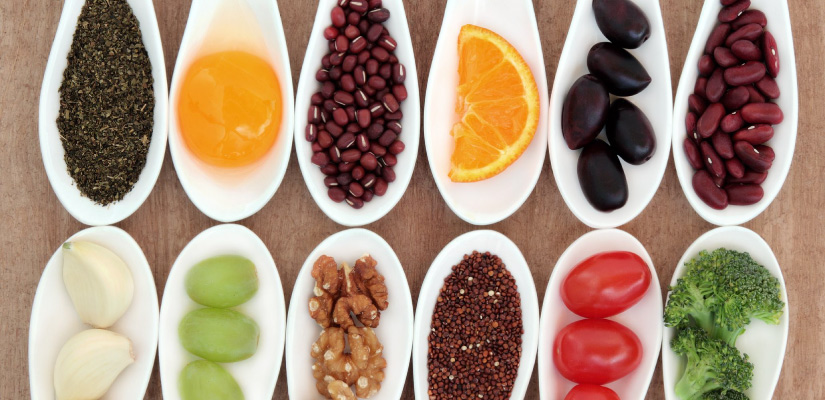
Protein
Protein is the building block of life, used by your body to build and repair tissue, make hormones and enzymes, and to a lesser extent as an energy source. While the term “protein” implies a singular thing, it actually refers to a broad category of large and complicated molecules (the human body probably contains over 80,000 of them.23) Each protein is itself composed of a combination of smaller components called amino acids. Your body can synthesize some amino acids on its own, but there are 9 (referred to as essential amino acids) that it can’t produce internally and must acquire from protein in your diet.24 For plant-based athletes, this can present a challenge in two ways: protein quantity and protein quality.
Protein Quantity
The first protein-related concern for plant-based athletes is simply getting enough to begin with. Omnivorous western diets derive a significant proportion of their protein from animal products such as meats and dairy,14 and eliminating these foods may prevent you from getting enough protein if you don’t replace them with plant-based sources.
Luckily, there are plenty of plant-based sources of protein available, and on a caloric basis, many of them are even higher in protein than animal foods. But there’s a hitch, as plant-based proteins tend to be less digestible, less biologically available, and less efficiently utilized than those coming from animal sources. For this reason, it’s generally recommended that plant-based diets should include more protein overall than omnivorous diets.25 And since most experts say endurance athletes need extra protein anyway,26 the end result is that plant-based athletes need a lot of protein in their diet—at least 1.3–1.8 g/kg body weight each day, according to most sources, with some recommending even more. For a 150 lb cyclist that’s the equivalent to the amount found in about 4 cans of beans or 6 veggie burgers, every day.
So how can you get enough protein to meet your needs as a plant-based athlete? First, because your body can only digest a limited amount of protein in one sitting, spread your intake throughout the day and eat some at every meal. Second, try to get your protein from as wide a variety of foods as possible. Multiple protein sources make your diet more interesting and enjoyable, and as we’ll discover next they help solve the other major protein-related challenge facing plant-based athletes.
Protein Quantity Takeaway:
- Athletes need more protein than sedentary individuals. Since plant-based proteins are generally harder for your body to digest and less bioavailable than animal protein, you need to eat a lot of protein as a plant-based athlete: possibly as much as 1.8g/kg body weight each day or more.
Protein Quality
Not all protein is of equal use to your body. Remember those 9 essential amino acids you need to acquire from your diet? Some protein sources (referred to as complete proteins) contain all of them, while others (called incomplete proteins) contain only some. Unfortunately for plant-based athletes, many of the most common animal proteins are complete, while most plant proteins are not.25 This means even if you get enough total protein, you may still lack specific essential amino acids (leucine is the most commonly-omitted amino acid in a vegan diet).
The remedy to incomplete proteins is straightforward: variety. Not all plant-based proteins lack the same amino acids; by consuming a range of protein sources each day you can effectively solve the shortcomings of one by consuming it alongside another. Best of all, the combinations of foods that result in complete proteins often go together quite nicely; a classic example is rice and beans.
It’s also worth noting that some plant-based protein sources (such as wheat) are more incomplete than others, while a few plant proteins such as soy, buckwheat, and quinoa are complete or nearly complete.27 But even these higher-quality plant proteins tend to be less immediately usable by your body than animal proteins, so you should still consume more protein overall on a plant-based diet than on an omnivorous one.25, 28
Protein Quality Takeaway:
- Most plant-based proteins lack essential amino acids and are considered incomplete. By varying and combining protein sources at each meal, you can compensate for the shortcomings of one by pairing it with another.
Other Nutrients
Plant-based diets are sometimes associated with deficiencies of a few other essential nutrients. Iron and zinc are potential concerns,29, 30 but vegan staples such as legumes and green leafy vegetables are good sources of them,31 and it’s easy to get enough if you eat—you guessed it—a wide variety of foods. Getting enough iodine8 can also be a challenge since seafood is the most common source of this mineral in most omnivorous diets. Trace amounts are found in some fruits and vegetables, but iodized salt and seaweed are the main sources for vegans and vegetarians 32, 33. Track your intake for a few days to verify you’re getting enough.
Other Nutrients Takeaway:
- Poorly-balanced plant-based diets may lack iron, zinc, iodine, or other essential nutrients. It’s a great idea to track your intake for a few days and make sure you’re regularly getting enough of what you need.
In conclusion
Switching to a plant-based diet may have positive implications for environmental sustainability and animal welfare, but the most immediate concern for endurance athletes is the impact on athletic performance. In this regard, current research shows that plant-based diets can be perfectly adequate for athletes. In fact, as long as you’re getting the calories and nutrients you need, training on a plant-based diet is the same as on an omnivorous one, with added potential benefits for overall health.
That said, plant-based diets aren’t foolproof. You can absolutely get the calories, vitamins, minerals, and protein you need without eating animal products, but it takes a deliberate approach to get it right for the demanding needs of an athlete. In most cases, that simply comes down to eating extra protein and a diverse mix of foods, both from day to day and within each meal. Consult with your doctor or a dietician before making any major changes to your diet, track your calories and macronutrients if you’re unsure of your intake, and experiment with what works best for you—and most importantly, what tastes good.
Read More on Nutrition for Endurance Athletes
- Cycling Nutrition: Everything You Need to Know
- Nutrition: The Elements of Getting Faster
- 8 Principles of Healthy Nutrition with Amber Pierce
- Fueling With Natural Pre-Workout Nutrition
- How to Use Carbs For Maximum Performance
- Rest Week Nutrition: What to Eat to Recover
References
1. Panoff, Lauren. “Plant-Based vs. Vegan Diet — What’s the Difference?” Healthline, 10 March 2020, https://www.healthline.com/nutrition/plant-based-diet-vs-vegan.
2. Eske, Jamie. “Vegan vs. vegetarian: Differences, benefits, and which is healthier.” Medical News Today, 14 June 2019, https://www.medicalnewstoday.com/articles/325478#veganism.
3. “Vegan Cyclists.” Great Vegan Athletes, https://www.greatveganathletes.com/category/vegan-cyclists/.
4. “US Retail Market Data For the Plant-Based Industry.” Good Food Institute, https://gfi.org/marketresearch/?gclid=CjwKCAiAnO2MBhApEiwA8q0HYShTweqJ81a4JpolXosBz3eHz7kbMld6YndOyKt7FfEndFOk0fJqOBoCr_wQAvD_BwE.
5. “Vegan Food Market Size & Growth | Industry Report, 2025.” Grand View Research, https://www.grandviewresearch.com/industry-analysis/vegan-food-market.
6. Šimčikas, Saulius. “Is the Percentage of Vegetarians and Vegans in the US Increasing?” Animal Charity Evaluators, 16 August 2018, https://animalcharityevaluators.org/blog/is-the-percentage-of-vegetarians-and-vegans-in-the-u-s-increasing.
7. “Vegetarianism by country.” Wikipedia, https://en.wikipedia.org/wiki/Vegetarianism_by_country.
8. Wirnitzer, KC (2020) “Vegan Diet in Sports and Exercise – Health Benefits and Advantages to Athletes and Physically Active People: A Narrative Review.” Int J Sports Exerc Med, 16 May 2020. 6:165. doi.org/10.23937/2469-5718/1510165
9. McCormick, Benjamin. “Why People Go Vegan: 2019 Global Survey Results.” VomadLife.com, 4 March 2019, https://vomadlife.com/blogs/news/why-people-go-vegan-2019-global-survey-results.
10. Spencer, E A et al. “Diet and body mass index in 38000 EPIC-Oxford meat-eaters, fish-eaters, vegetarians and vegans.” International journal of obesity and related metabolic disorders : journal of the International Association for the Study of Obesity vol. 27,6 (2003): 728-34. doi:10.1038/sj.ijo.0802300
11. “Body Mass Index: Considerations for Practitioners.” CDC, https://www.cdc.gov/obesity/downloads/bmiforpactitioners.pdf.
12. Brackett, Aya. “6 Science-Based Health Benefits of Eating Vegan.” Healthline, https://www.healthline.com/nutrition/vegan-diet-benefits.
13. Appleby, Paul N, and Timothy J Key. “The long-term health of vegetarians and vegans.” The Proceedings of the Nutrition Society vol. 75,3 (2016): 287-93. doi:10.1017/S0029665115004334
14. Clarys, Peter et al. “Comparison of nutritional quality of the vegan, vegetarian, semi-vegetarian, pesco-vegetarian and omnivorous diet.” Nutrients vol. 6,3 1318-32. 24 Mar. 2014, doi:10.3390/nu6031318
15. Cullum-Dugan, Diana, and Roman Pawlak. “Position of the academy of nutrition and dietetics: vegetarian diets.” Journal of the Academy of Nutrition and Dietetics vol. 115,5 (2015): 801-810. doi:10.1016/j.jand.2015.02.033
16. “Calorie Density for Weight Loss.” No Meat Athlete, https://www.nomeatathlete.com/calorie-density/.
17. Mangels, Reed. “Calcium in the Vegan Diet — The Vegetarian Resource Group.” Vegetarian Resource Group, https://www.vrg.org/nutrition/calcium.php.
18. Jennings, Kerri. “Top 15 Calcium-Rich Foods (Many Are Nondairy).” Healthline, https://www.healthline.com/nutrition/15-calcium-rich-foods.
19. “Calcium Supplements & Absorption.” MUSC Health, https://muschealth.org/medical-services/geriatrics-and-aging/healthy-aging/calcium.
20. “Debunking the Myth – Vegans and Vitamin B12.” Vegan Life Magazine, https://www.veganlifemag.com/debunking-myth-vegans-vitamin-b12/.
21. “What Every Vegan Should Know About Vitamin B12.” The Vegan Society |, https://www.vegansociety.com/resources/nutrition-and-health/nutrients/vitamin-b12/what-every-vegan-should-know-about-vitamin-b12.
22. “Vitamin B12 deficiency can be sneaky, harmful.” Harvard Health, 10 January 2013, https://www.health.harvard.edu/blog/vitamin-b12-deficiency-can-be-sneaky-harmful-201301105780.
23. Tim, Schröder. “The Protein Puzzle | MaxPlanckResearch 3/2017: The Roots of Humankind.” Max Planck Gesellschaft, https://www.mpg.de/11447687/W003_Biology_medicine_054-059.pdf.
24. “Essential Amino Acids: Definition, Benefits and Food Sources.” Healthline, 12 June 2018, https://www.healthline.com/nutrition/essential-amino-acids.
25. Berrazaga, Insaf et al. “The Role of the Anabolic Properties of Plant- versus Animal-Based Protein Sources in Supporting Muscle Mass Maintenance: A Critical Review.” Nutrients vol. 11,8 1825. 7 Aug. 2019, doi:10.3390/nu11081825
26. Kato, Hiroyuki et al. “Protein Requirements Are Elevated in Endurance Athletes after Exercise as Determined by the Indicator Amino Acid Oxidation Method.” PloS one vol. 11,6 e0157406. 20 Jun. 2016, doi:10.1371/journal.pone.0157406
27. “11 Vegan Foods That Are Complete Protein Sources.” PETA, 26 July 2017, https://www.peta.org/living/food/complete-proteins-vegan/.
28. Rogerson, David. “Vegan diets: practical advice for athletes and exercisers.” Journal of the International Society of Sports Nutrition vol. 14 36. 13 Sep. 2017, doi:10.1186/s12970-017-0192-9
29. Saunders, Angela V., et al. “Zinc and vegetarian diets.” The Medical Journal of Australia, 29 October 2013, https://www.mja.com.au/journal/2013/199/4/zinc-and-vegetarian-diets.
30. Ruscigno, Matt, and Vanessa Vadim. “Iron for Vegetarians & Vegans.” No Meat Athlete, https://www.nomeatathlete.com/iron-for-vegetarians/.
31. “Top Foods High in Iron for Vegans.” WebMD, 17 November 2020, https://www.webmd.com/diet/foods-high-iron-vegans.
32.“Iodine for Vegans | What You Need to Know on a Vegan Diet.” Lettuce Veg Out, https://lettucevegout.com/vegan-nutrition/iodine/.
33. Butler, Justine. “The best sources of iodine on a vegan diet.” Vegan Food & Living, 10 September 2018, https://www.veganfoodandliving.com/vegan-diet/vegan-nutrition/the-best-sources-of-iodine-on-a-vegan-diet/.
